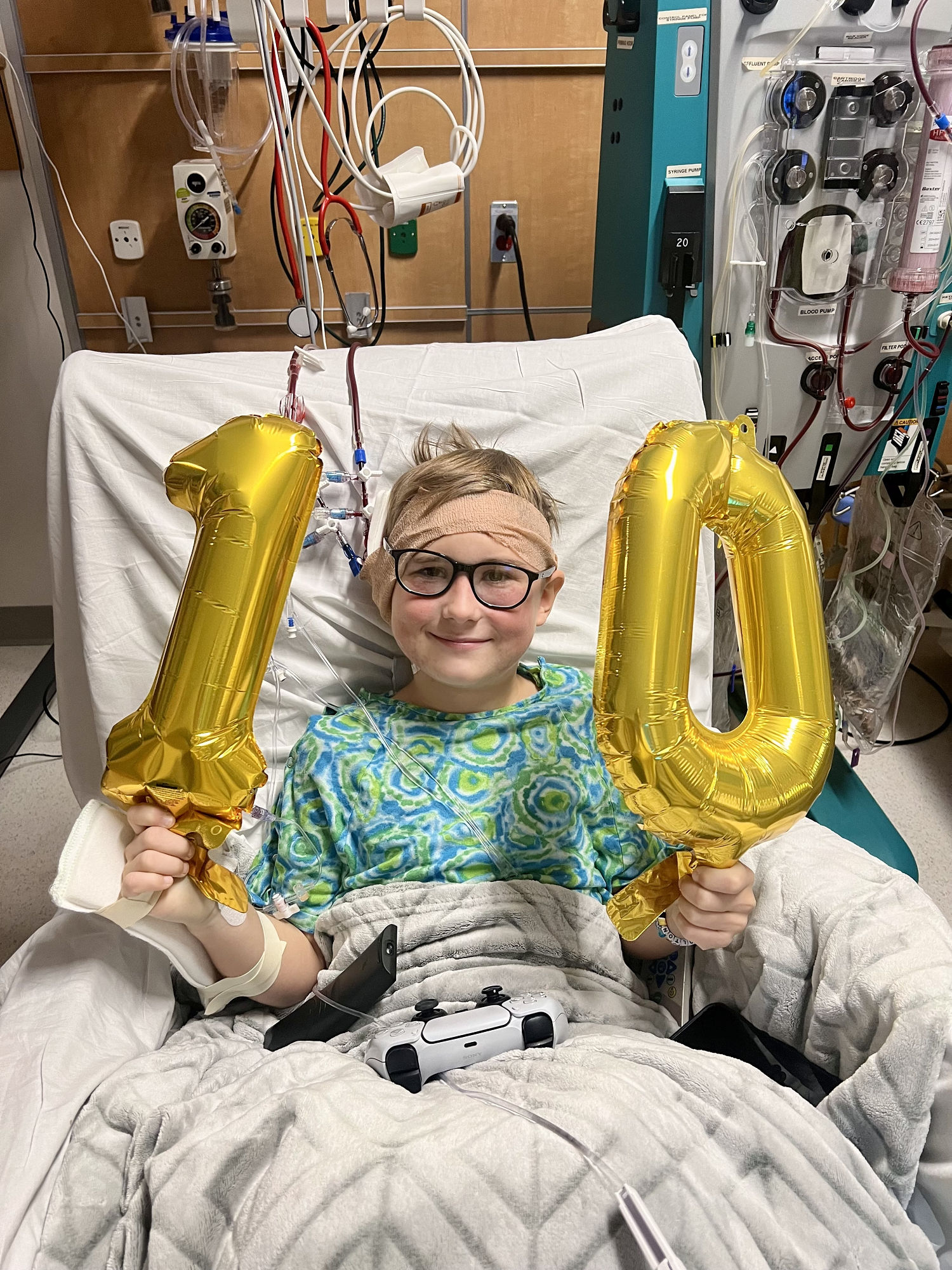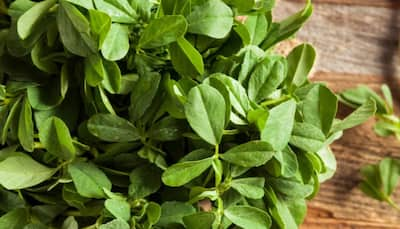Before Thanksgiving last year, Colton George, then 9, became very ill. “I was going to the bathroom like five or six times a day,” Colton told NBC affiliate in Indianapolis. “My stomach was like cramping really bad.
” A day after playing basketball, Colton’s pain intensified, and his worried parents took him to the hospital. There, they learned what caused Colton’s symptoms. “They were like, ‘Your son does have two different types of E.

coli, and unfortunately, he has the E. coli that is the worst that produces Shiga toxin,” Amber George, Colton’s mom, told WTHR. Colton developed hemolytic uremic syndrome and kidney failure, reported.
In hemolytic uremic syndrome in general (not particular to Colton's case), blood vessels experience inflammation and damage, leading to clots developing throughout the body, according to the . The clots can injure organs, including the kidneys. Over 18 days in the hospital, Colton underwent five blood transfusions and spent 14 days on dialysis as doctors stabilized him.
He even celebrated his 10th birthday while undergoing treatment. “It’s really traumatizing,” Colton said. “I just start tearing up because .
.. I don’t want anybody to remind me of that.
” After testing in the hospital, doctors determined that Colton had E. coli 0157:H7. His parents told NBC News that Colton's doctors believed he picked up from food he ate.
“Where did he get this from?” dad Christopher George recalled to NBC News. “Something must have gone wrong somewhere.” According to NBC News, a lawsuit filed by the Georges claims that testing of the bacteria that infected their son was genetically the same as the E.
coli responsible for an outbreak in Missouri around the same time as Colton's illness. This particular E. coli pathogen in the Missouri outbreak was also tied to 89 cases across 15 states, .
The report also stated that romaine lettuce from "a sole processor" was the source of the outbreak. But the FDA did not release the name of the companies involved in producing the lettuce, NBC News reported. The Georges' attorney, Bill Marler, acquired receipts, reviewed by NBC News, as part of the lawsuit, which he says show that the lettuce linked to the outbreak was produced by Taylor Farms, a large producer of salads and vegetables based in Salinas, California — which the company denies.
“Taylor Farms product WAS NOT the source of the referenced 2024 E. Coli outbreak. We perform extensive raw and finished product testing on all our product and there was no evidence of contamination,” the company told NBC News in a statement.
Taylor Farms has been named in nine different lawsuits, including the Georges', which argue the company sold “defective and unreasonably dangerous” food products, per court documents. When NBC News asked the FDA whether Taylor Farms was involved in the outbreak, a spokesperson said it could not share “confidential commercial information” because of federal law. “The FDA names firms when there is enough evidence linking an outbreak to a firm and there is actionable advice for consumers, as long as naming the firm is not legally prohibited," a statement read in part.
"By the time investigators had confirmed the likely source, the outbreak had already ended and there was no actionable advice for consumers." After Colton’s hospital stay, the Georges say they are facing about $20,000 in medical bills. The boy's health has improved, but he's still experiencing lingering symptoms, including exhaustion and stomach cramps, according to NBC News.
The Georges say they want the public to know which companies were responsible for the outbreak that sickened their son. “It’s not fair for them to get off the hook,” Amber George told NBC News. “People are still going out and buying their product every day and have no idea what happened.
” Meghan Holohan is a digital health reporter for TODAY.com and covers patient-centered stories, women’s health, disability and rare diseases..
Health

Romaine lettuce E. coli outbreak left boy, 10, hospitalized with kidney failure, lawsuit says

Before Thanksgiving last year, Colton George, then 9, became very ill.















